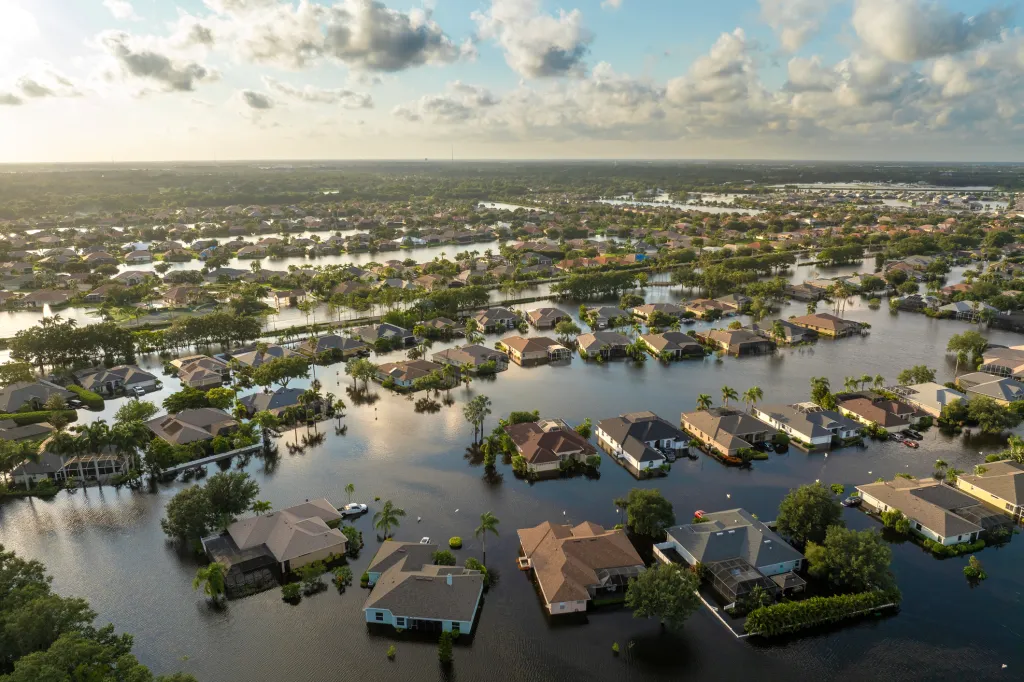Redefining Public Health in the Age of Climate Crisis
The climate crisis leaves us with little choice: we need to radically rethink health and healthcare

Image credit: Bilanol
By Patty O’Hayer, Global Head of External Affairs, Reckitt
Hurricane Milton, which swept through Florida last week, is the latest flashpoint in a broader crisis — the escalating effect of climate change on human health.
It’s a crisis that will get worse before it gets better. Between 2030 and 2050, the climate emergency is set to cause 250,000 additional deaths per year. Covid exposed the frailties and inequities of our global health system, and climate change is now doing the same, on an even grander scale.
This problem also runs in the other direction. The health sector itself causes five percent of global emissions and if the industry were a country, it would be the fifth largest polluter on earth. Close inspection of climate change and health therefore reveals a double-sided malady: climate change harms human health, while human health systems harm the climate.
To drive lasting change in the face of these twin challenges, we need a radical rethink of health and healthcare. Global health and health systems are sick. To find a cure, we need to transition away from a top-down, treatment-based model, to a more holistic approach, which places much greater emphasis on keeping people well.
Such a shift may sound like a tall order. Especially since less than 7% of health spending goes toward prevention. But it is already happening. In cities and communities in almost every country, we are seeing the value of projects that strive to tackle the social and environmental determinants of ill health at source.
Health isn’t and cannot simply be the responsibility of doctors and nurses. It’s also the remit of urban planners, mayors, employers. Even teachers. We shouldn’t just be fighting childhood asthma by prescribing more and more inhalers, but also by designing cities in such a way that children don’t breathe in toxic fumes on the way to school, or live in damp, poorly ventilated housing.
A pioneer of this approach is Dr Ashwin Vasan, until very recently Health Commissioner of New York City. His public health initiatives encompassed housing, mental health and urban planning. He promoted health equity through local outreach efforts and made a point of asking the poorest communities, who regularly fall through the cracks of government health provision, how best to serve their needs. Integral to his approach was education: he didn’t just give out food to the needy. He taught young people in New York City to prepare fresh, inexpensive meals.
Local, place-based approaches have a critical role to play in supporting healthier, happier lives. Cities are at the forefront of this movement, and with good reason. Urban centres, thanks to their population density, heat retention and energy needs, are much more vulnerable to climate change — including the catastrophic health impacts. Respiratory, water-borne and heat related illnesses will hit first and hardest in the metropolises that now house 55 per cent of the world’s population.
Fortunately, there is good work happening around the world, as highlighted by a recent Rockefeller Foundation report on urban climate health. The report, which suggests a new approach to global health in cities, is full of eye-catching examples of “climate-informed” ground-level health action. There’s the municipal initiative in Rio de Janeiro uniting entomologists, meteorologists and urban planners behind a plan to curb dengue outbreaks. A project in Dhaka, Bangladesh, where a multi-sectoral team is giving umbrellas and drinking water to people during heat waves. And Lusaka, Zambia, where a Collective Service group was formed to better understand the social, cultural and behavioural drivers of cholera transmission.
There is no glory in prevention. It is long-term and unsexy. But it is imperative if we are to stem growing threats to health, the intensifying pressure on health systems and the emissions caused by the health industry. Much more must be done to help build the business case for holistic, preventative healthcare.
This kind of healthcare only works when people are empowered to take responsibility for their own health. Today’s national health systems are under-resourced and over-burdened. Community-schemes, health education campaigns and local support groups must fill the gaps. Health must begin at home. Healthcare, to some extent, needs to become self-care. That is what prevention-based healthcare means in practice. And it won’t only lead to longer, happier lives. It’s also the only way to rapidly decarbonise our healthcare industry.
As Hurricane Milton melted into the atmosphere, government agencies stepped in to help pick up the pieces. But the long term battle for health amid a climate emergency will be waged by the local community. Tampa mayor, Jane Castor, understands this well. Last year, her city government published a report on how to maintain Tampa’s prosperity in the face of escalating health and climate threats. “It is up to us to roll up our sleeves and continue working together to make this document a reality,” she said in the foreword, “The hard work starts now.”
